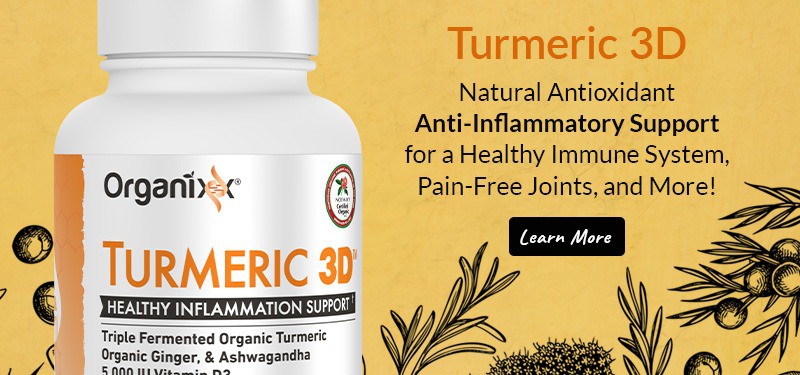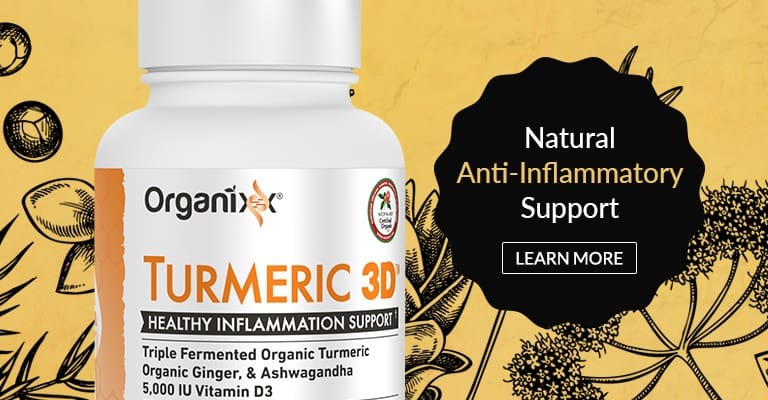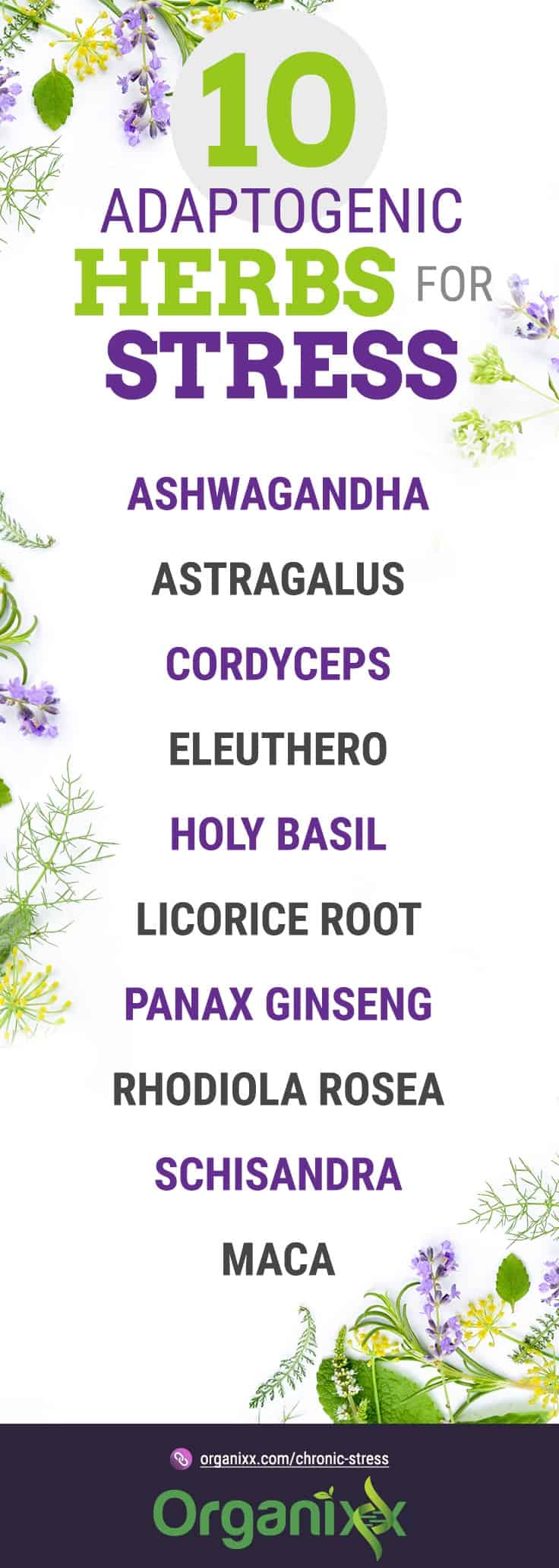Video Transcript:
Happy Heart Health Awareness Month! I am going to share with you today four very important cardiovascular risk factors to be aware of that your doctors are not detailing fully that can literally change your life and can prevent heart disease, heart episodes like heart attacks, stroke, and all of the other assortment of imbalances in your heart health.
1. Too Much Sugar
So, the first cardiovascular risk that nobody’s really zeroing in on is that your sugar intake from both a dietary perspective and or your body’s natural production like insulin, is one of the greatest risks or risk factors that leads to breakdown of your cardiovascular health. And you might ask, “Dr. Melissa, how is that possible? I thought salt was the thing we’re supposed to be aware of,” and actually sugar is the worst. Out of any other element that influences the heart health, sugar is a direct leading source of cardiovascular imbalances. And I would gauge to state that it’s one of the number-one factors in terms of individuals who might be experiencing pre-diabetic states or consuming your standard American diet that have insulin imbalances.
So, if you are looking to get control of your heart health, be preventive, or reverse some of the staging of heart disease and heart cardiovascular imbalances, really understanding your blood sugar levels and your daily hourly insulin levels is going to be critical.
You might see a lot of people now have these patches that they put on their arm and it connects up to their phone where they can literally track after I eat a meal, insulin either spikes or stays maintained. Everybody’s biochemistry is different and so it’s really important to be able to track your blood sugar as well as the insulin on a not just morning fasting basis like we usually see in lab tests, but throughout the day. And there are influences, and particularly number four in this video for you is going to highlight this further.
2. Magnesium Deficiency
So number two, the second cardiovascular risk is deficiencies in magnesium. Last year, I talked about magnesium, our Magnesium 7, and the connection to heart health, but it’s really, really important to know that over 95% of individuals here on earth are lacking in some degree of magnesium.
There are different types of magnesium. There are certain forms of magnesium that are better for your heart health. There are others that are more productive for minimizing fluid retention, which can be really helpful if folks have chronic vascular insufficiency or have assorted fluid retention related to heart failure.
But there’s also other magnesiums that are really good for your heart tissue. Magnesium, most importantly, when it comes to your overall cardiovascular health, when we have optimal, not just normal in the middle range, but optimized high level, in the range but optimized magnesium, we minimize the body’s accumulation of plaque, particularly bone matter in our cardiovascular system.
For anybody who’s had a family member that has suffered from arterial sclerosis, that’s a thickening or hardening of the arteries. The thickening and the hardening that narrows the walls of that artery, it’s bone matter, and so magnesium minimizes calcium from getting into your cardiovascular system. That is absolutely critical.
3. Not Exercising Every Day
Number three, as far as cardiovascular risks, are individuals who are not doing daily cardio. This is really important. Exercise is important. 30 minutes minimum of cardiovascular effect where you’re getting your heart rate, you’re getting a sweat on – brisk walking, swimming, even rebounding for 30 minutes is really great. But not doing that every day is a risk factor.
So, I have a lot of folks that are fitness enthusiasts, they’re in the gym, and individuals that may be only lifting weights and not doing cardio or they’re not doing the HIIT and the intensity, getting the blood pumping that might not qualify as cardio specifically.
4. Neglecting Stress Levels
Now number four, this is really important. The really, really key critical factor for minimizing both stress levels in your body, the cortisol hormone, as well as minimizing the spikes of insulin or imbalances in blood sugar, is getting control of the stress hormone. So, high blood pressure, elevated heart rate, high cholesterol, and even elevations in triglyceride levels, all are contributed to an increased cortisol level.
So, cortisol is our stress hormone that our adrenals produce. This is a fight-or-flight stress response mechanism. And cortisol is a natural, innate hormone that helps us either get our bodies ready to fight or flight, to run, and that activity naturally requires a spike of energy. So, insulin increases, which is bad for the heart, talked about that first, but it’s also going to trigger a central nervous system response, elevation in blood pressure, elevation in heart rate and cortisol is clogging and overwhelming to your liver, which leads to increases in triglycerides and cholesterol.
So, the traditional model is to combat cholesterol by giving you a statin drug. But what that doesn’t address is the source, which is stress hormone called cortisol. I do a lot of cortisol testing with my patients. We actually do saliva-based testing. You can get a four-panel snapshot throughout the day, gives us a really good idea of this ideal cycle, very much like our circadian cycle, but cortisol management and keeping cortisol calm and in the levels we need at certain times of the day can really turn around the state of your heart health.
So, those are four powerful risk factors that many people, especially your clinicians, are not discussing that I know will literally change the state of your heart health, will help prevent heart disease, and might save you or maybe a family or friend’s life. So, I’m excited to share this information with you today.
Magnesium deficiency is linked to stress, diabetes, heart disease, osteoporosis, chronic fatigue syndrome, depression, anxiety, trouble sleeping, sore muscles, migraines, and many more debilitating health conditions.
If your body needs magnesium, you want the most beneficial kind your body can actually absorb. Organixx Magnesium 7 gives you seven (7) of the very best, most bioavailable types of elemental magnesium available.

Video Transcript:
If you are looking to prevent heart disease, I’m going to share with you five easy ways to maximize your cardiovascular health.
Cut The Sugar
So number one, this is the least discussed topic with many cardiologists and their patients, but it is at the core root of heart disease. And that is – cutting out sugar. Sugar is actually the number one leading cause of heart disease because sugar causes metabolic syndrome. It increases our insulin levels, it can increase our blood sugar, and it has a direct relation to the increases patients see with their blood pressure levels. When individuals curb the sugar intake in their diets, research shows it decreases the risk for heart disease.
Eat More Fats and Less Carbs
Number two is reach for more fats and less carbs. And this is piggybacking on keto diet focus, where individuals are utilizing more fats for energy than they are carbs. So, a lot of people don’t realize that carbohydrates – even more complex carbohydrates – ultimately end up turning into sugar in the body. And that leads to, again, an increase in insulin, increase in your blood sugar levels. And ultimately, carbs and sugar-dense diets create a situation where individuals present with insulin resistance and glucose intolerance.
The reason why we recommend eating more fat is, fat is an energy. So, consuming healthy fats like coconut oil, and ghee, and even flaxseed oil are going to be healthier than consuming carbs. And carbs actually are the… I’m going to take that back. Carbs can lead to subcutaneous fat increases as well, as visceral fat increases – that’s fat around your organ matter. So, it’s really critical that you look at making some subtle switches and adding healthier fat to your diet. The other thing that adding fat does to support your body is it will help balance out hormone levels. And we often see healthy fats will actually increase your HDL levels.
Increase Antioxidant Levels
Number three is increasing your antioxidant levels. Antioxidants are really important for lowering free radical damage and offsetting oxidative stress. We find that individuals who have heart disease or an assortment of cardiovascular impairments, when we test them, they have low antioxidant levels and high inflammatory markers. So antioxidants and inflammation go hand in hand – we have low antioxidants, we’ll have high inflammatory markers. So, the best way to address inflammation is to level up your antioxidants.
I’m going to share with you some amazing resources that we have here at Organixx. My favorite antioxidant blend is our Turmeric 3D. This is so wonderful because turmeric is a very powerful antioxidant, and this is in a fermented form that makes it way more bioavailable, so you’re getting the max dose of antioxidants in this supplement.
The other thing that we find is that functional mushrooms can also deliver antioxidants. One of my favorite mushrooms is chaga. And the 7 Mushrooms, this is listed as an antioxidant support because of chaga and some of the other mushrooms in the supplement. Chaga is the most naturally occurring antioxidant on what we call the org scale. It is the number-one natural organism on the antioxidant scale.
And so, adding Turmeric 3D and 7 Mushrooms to your diet is a really good way to power up your antioxidant. And another recommendation I have is to add CoQ10. That’s a powerful antioxidant. And if you follow along here this month, because it’s heart disease month, I’ll be talking a little bit more in-depth about CoQ10. So look for that email.
Consume More Magnesium
Now, my fourth recommendation is to consume more magnesium. And I like to recommend a complete magnesium blend, a comprehensive assortment of magnesium forms. And here at Organixx, we have Magnesium 7. This is so fantastic because magnesium is an amazing mineral that directly impacts our heart health.
And in fact, a lot of studies showcase that individuals with heart disease, or folks that have heart arrhythmias, heart attacks, or vascular impairment; they have lower magnesium levels. And my recommendation, if you are dealing with any diagnosed heart disease, is to take Magnesium 7 two times daily. And that would give you a good, broad, continuous level of magnesium supplementation. And make sure you ask your doctors to test your magnesium because unfortunately, that is not considered or evaluated in our normal chem panels, so it’s important to evaluate those levels. And I’ll be talking more about magnesium as well in future content here this month.
Manage Stress Levels
And last and final, number five is to manage your stress levels. Stress can cause heart disease. Stress is the root of a lot of inflammatory disorders and it can stress our cardiovascular system. So, there are some recommendations here:
Exercising obviously is a good one for reducing stress, but exercising 30 minutes or less is really ideal. The other thing I recommend is to meditate or reach for some sort of breathing, lowering-of-your-stress-level activity. It can be transcendental meditation, it can be Kundalini yoga, but incorporating breathing and stress management are very powerful at reducing and preventing heart disease. And then the last and final in stress management is to reach for adaptogens, which you’re going to find in the 7 Mushrooms here. This mushroom blend is rich in adaptogens that help your body adapt to and manage stress every day.
So, those are my five tips for preventing heart disease daily. I’m so excited for you to try these out in your lives.
Turmeric 3D from Organixx provides you one of the most “bioavailable” forms of turmeric due to its unique fermentation process. This means your body experiences the maximum benefits of the purest, most potent turmeric available!

According to the U.S. Centers for Disease Control and Prevention (CDC), the leading causes of death in the United States today include many of the usual suspects. Topping the list are things such as heart disease, cancer, chronic lower respiratory illness, accidents, stroke, Alzheimer’s disease, diabetes, influenza and pneumonia, kidney disease, and suicide [1].
But consider the fact that, in many cases, there’s often just one cause behind these conditions that people, for the most part, seem to overlook: chronic stress.
According the American Psychological Association (APA) the causes of stress most often cited by Americans in 2019 included fear of mass shooting, health care, and the 2020 presidential election [2].
Prolonged stress in whatever way it manifests itself can be deeply harmful to the body – not only physically, but also emotionally and even spiritually.
Stress Linked to the Most Common Causes of Death
The APA warns that chronic stress is directly linked to at least six (and likely more) of the most common causes of death in modern America.
Most notably the effects of stress contribute to:
- heart disease
- lung disease
- cancer
- accidents
- cirrhosis of the liver
- self-murder
Believe it or not, one scientific study found that upwards of 90 percent of all chronic illnesses are caused by stress [3]!
How Is Your Body Coping With Stress and Anxiety?
 While the human body is fully equipped to combat the negative effects of acute (short-term) stress, persistent (ongoing) stress and anxiety is an entirely different animal.
While the human body is fully equipped to combat the negative effects of acute (short-term) stress, persistent (ongoing) stress and anxiety is an entirely different animal.
This type of prolonged stress takes a much bigger toll on the body than many people think. It wreaks some of its worst havoc on the glandular and endocrine systems of the thyroid and adrenals that are responsible for producing the various hormones that our bodies need to live and thrive.
Chronic Stress Depletes the Body
What was designed to be a temporary “fight or flight” response to occasional stressors by these important systems is forced into becoming a permanent coping mechanism for constant, unrelenting stress.
If left unchecked, this type of chronic stress will eventually deplete the body’s hormone stores to dangerous lows.
This sets the stage for a cascade of even worse health problems that are likely to form in their absence. We’re talking potentially life-threatening metabolic changes like blood sugar imbalances (type-2 diabetes), brain damage, decreased bone density and muscle wasting, increased blood pressure, impaired immunity and healing, excess fat growth (especially around the abdomen), and elevated risk of heart attack.
What Are the Signs of Chronic Stress?
There are many ways that stress shows up in the body – both physically and emotionally. Some of the most common signs of stress as shared by WebMD include [4]:
Physical Chronic Stress Symptoms
- Low energy
- Headaches
- Upset stomach (including diarrhea, constipation, and nausea)
- Aches, pains, and tense muscles
- Chest pain and rapid heartbeat
- Insomnia
- Frequent colds and infections
- Loss of sexual desire and/or ability
- Nervousness and shaking, ringing in the ear
- Cold or sweaty hands and feet
- Excess sweating
- Dry mouth and difficulty swallowing
- Clenched jaw and grinding teeth
Emotional/Mental Signs of Stress
- Becoming easily agitated, frustrated, and moody
- Feeling overwhelmed (either like you are losing control or need to take control)
- Having difficulty relaxing and quieting your mind
- Feeling bad about yourself (low self-esteem), lonely, worthless, and depressed
- Avoiding others
Adaptogens: Nature’s Solution to Chronic Stress
 It is generally recognized that things like prayer and meditation, exercise, leisure, and rest are great ways to relieve stress: and these are all good things, indeed!
It is generally recognized that things like prayer and meditation, exercise, leisure, and rest are great ways to relieve stress: and these are all good things, indeed!
But what about diet and herbal support? We don’t hear much about that, and yet there’s an entire class of herbs known as adaptogens that are uniquely suited to support the body’s efforts to combat prolonged stress.
As their name implies, adaptogens help the body to adapt to difficult situations in life that contribute to chronic stress, in effect stopping it before it begins to take its toll.
Author, educator, and “Medicine Hunter,” Chris Kilham, describes adaptogens like this [5]:
“An adaptogen is a botanical that greatly improves your body’s ability to adapt to stress, whether it’s a hectic schedule, heat or cold, noise, high altitudes or any number of other stressors. This elite class of herbs imparts strength, energy, stamina, endurance, and improves mental clarity.”
One study published in the journal Pharmaceuticals describes adaptogens as substances that enhance the “state of non-specific resistance” to stress. By generally warding off stress, adaptogens effectively help to protect the central nervous system against stress-induced neural damage, while also enhancing cognition and fighting fatigue, depression, and generalized anxiety.
Put more simply; adaptogens function as equalizing agents to help push the body towards homeostatic balance – which is its optimal state of being [6].
What makes adaptogens even more special is the fact that they don’t change any specific function of the body. Rather they aid the body’s adaptive structures to better respond to outside influences and stressors that, if persistent enough, can throw it majorly off-kilter.
In essence, adaptogens normalize the physiological state of the body to help release it from the constant state of “fight or flight” that demarcates what it means to be chronically stressed.
Adaptogens Modulate the Release of Cortisol, the “Aging” Hormone
One of the ways that adaptogens accomplish this mighty feat is by targeting the hormone most associated with the damaging effects of chronic stress: cortisol.
Cortisol is often referred to as the “aging” hormone, though not necessarily because it causes our bodies to age. Cortisol is actually quite helpful when it isn’t being produced excessively in response to stress.
Like all of the other hormones that our bodies produce, cortisol is essential for life. But it’s only supposed to be produced in small amounts, and for a limited time, as a buffering agent to keep the many systems of the body running smoothly.
When stress gets out of control, so does cortisol. It turns into a deadly killer that saps energy instead of creating it, and that impairs immunity rather than supports it.
How Adaptogens Lower Cortisol
This is where adaptogens come into play. Adaptogens intercede in place of cortisol to give the adrenal glands a break, effectively guarding them against becoming fatigued.
Cortisol levels decrease when adaptogens are present because adaptogens function similarly to cortisol. And because they’re introduced exogenously (from outside the body), adaptogens don’t cause any strain whatsoever on the body as excess cortisol does.
As a result, the adrenal glands are freed up to continue producing other vital hormones such as:
- Progesterone
- Estrogen
- Testosterone
- Human growth hormone (HGH)
The body needs all of these hormones to keep its many systems functioning well and in-sync with one another. This then allows cortisol, which functions as a type of master hormone, to spend more of its time guarding the body as it’s supposed to – rather than harming it in response to chronic stress.
Dr. James Wilson writes in his book Adrenal Fatigue that [7]:
“Cortisol is a key regulator in the hormonal web of the body. High and low cortisol levels impact negatively on body systems and related hormones, particularly thyroid and testosterone. About 80 percent of adrenal fatigue patients will also have a sluggish thyroid that needs supplementation.”
10 of the Best Adaptogenic Herbs for Managing Stress
 It’s no wonder that the traditional systems of medicine in India and China have been using adaptogenic herbs for thousands of years. These herbs help ward off stress and promote energy, calm, and balance throughout the body.
It’s no wonder that the traditional systems of medicine in India and China have been using adaptogenic herbs for thousands of years. These herbs help ward off stress and promote energy, calm, and balance throughout the body.
The tonifying properties of adaptogens (“tonifying” means increasing the available energy of a body part or system) truly are special in that these precious substances help to uplift the body while simultaneously leveling it out. Much like how a thermostat keeps the temperature inside your home not too warm, and not too cool, but just right.
So, what are some of the more popular adaptogens and how do they work?
Here are 10 adaptogens that time-honored tradition and science alike hold in high esteem for their powerful stress-killing potential:
- Ashwagandha. Arguably the most highly prized of the adaptogenic herbs, ashwagandha (Withania somnifera), also known as Indian ginseng, has a multi-millennia track record of powerful tonic effects in the realm of supporting immunity and emotional balance. Eastern medicine has long recognized the incredible ability of ashwagandha to support balanced cortisol levels while helping to mitigating stress.
- Astragalus. A popular herb in Traditional Chinese Medicine (TCM), astragalus (Astragalus propinquus) is similarly suited to support the immune system while buffering the effects of stress. Astragalus is also said to help the body in repairing stress-related damage from the past, while at the same time redirecting cortisol away from vulnerable stress receptors.
- Cordyceps. A nutrient-dense mushroom from the endoparasitoid family, the cordyceps (Ophiocordyceps sinensis) fungi isn’t technically an adaptogen in a traditional sense. But it does possess powerful adaptogenic properties as they pertain to immunomodulation and stress relief, which makes it a worthwhile option.
- Eleuthero. Also known as Siberian ginseng (Eleutherococcus senticosus), eleuthero has many of the same properties as ashwagandha and astragalus, with the added bonus of helping to support increased energy levels and optimal sexual function.
- Holy basil. Sometimes referred to as Tulsi, holy basil (Ocimum tenuiflorum) is particularly suited to help the body better respond to both physical and emotional stress. Its tonifying effects specifically on the mind are what set it apart from some of the other adaptogens, and many regards it as being powerfully anti-aging as well.
- Licorice root. Known scientifically as Glycyrrhiza glabra, licorice root is another energizing adaptogen with immune-boosting properties and a special ability to help protect the thymus gland from being damaged by cortisol. It’s important to use this one under the guidance of a qualified healthcare practitioner, though, because it can affect blood pressure levels.
- Maca. Also known as Peruvian ginseng (though it doesn’t actually hail from the ginseng family), maca (Lepidium meyenii) is regarded as being one of the “lost crops of the Andes.” It has long been prized by the native people of Peru as an herbal tonic of the highest order. Maca’s many reported benefits include increased strength, stamina, energy, libido, and sexual function.
- Panax Ginseng. Sometimes referred to as Asian, Chinese, or Korean ginseng, Panax ginseng is the most well-studied of the ginseng varieties and is considered to be the “truest” form of ginseng. Panax ginseng is said to provide non-specific support against mental, physical, and environmental stressors.
- Rhodiola rosea. Both calming and invigorating, Rhodiola rosea is another powerful adaptogenic herb that combats stress as well as fatigue – hence its immense popularity throughout Siberia where it’s natively grown.
- Schisandra. This incredible berry has been a staple of traditional medicine for centuries, as it’s known to help protect against adrenal fatigue while supporting healthy inflammation levels. A robust fighter against free radicals, schisandra actually seeks out stress hormones in the blood and helps neutralize them. At the same time, it supports enhanced physical performance, endurance, and energy levels.
Organixx Turmeric 3D Contains KSM-66 Ashwagandha
Organixx Turmeric 3D formula has always contained ashwagandha extract. As part of our commitment to the cleanest and most effective supplement ingredients, we upgraded to KSM-66 Ashwagandha in 2019 – the most clinically studied ashwagandha on the market.
KSM-66 is a full-spectrum ashwagandha extract produced using a unique proprietary extraction process, based on “Green Chemistry” principles, without using alcohol or any other chemical solvent.





